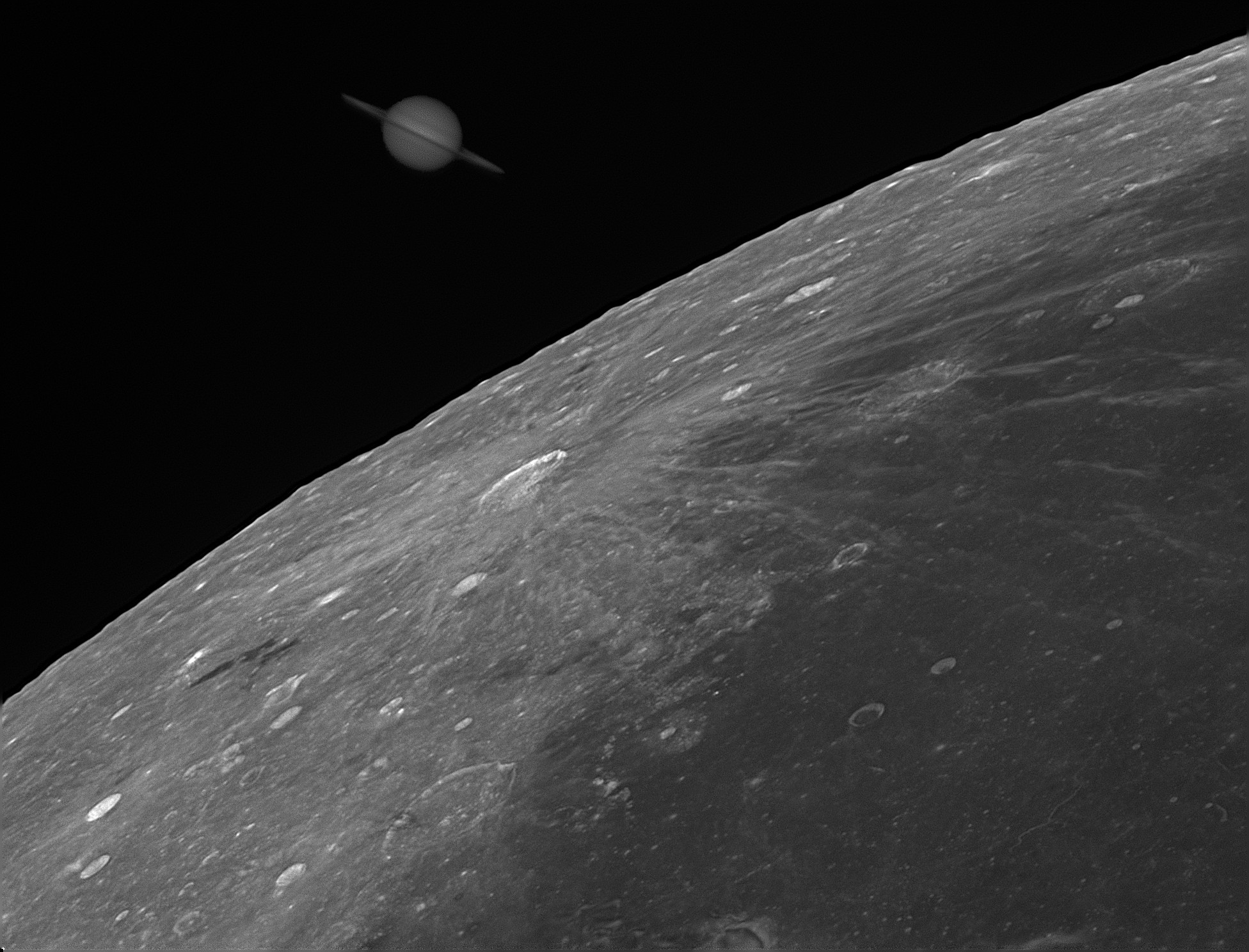APOD on Nostr: **Astronomy Picture of the Day** 27 July 2024 **Saturn at the Moon's Edge** ...
**Astronomy Picture of the Day**
27 July 2024
**Saturn at the Moon's Edge**

Image Credit & Copyright: Chengcheng Xu
Saturn now rises before midnight in planet Earth's sky. On July 24, the naked-eye planet was in close conjunction, close on the sky, to a waning gibbous Moon. But from some locations on planet Earth the ringed gas giant was occulted, disappearing behind the Moon for about an hour from skies over parts of Asia and Africa. Because the Moon and bright planets wander through the sky near the ecliptic plane, such occultation events are not uncommon, but they can be dramatic. In this telescopic view from Nanjing, Jiangsu, China, Saturn is caught moments before its disappearance behind the lunar disk. The snapshot gives the illusion that Saturn hangs just above Glushko crater, a 43 kilometer diameter, young, ray crater near the Moon's western edge. Of course, the Moon is 400 thousand kilometers away, compared to Saturn's distance of 1.4 billion kilometers.
#APOD #Astrogeology #Galaxy #SpaceResearch #Astrodata
https://apod.nasa.gov/apod/ap240727.html
27 July 2024
**Saturn at the Moon's Edge**

Image Credit & Copyright: Chengcheng Xu
Saturn now rises before midnight in planet Earth's sky. On July 24, the naked-eye planet was in close conjunction, close on the sky, to a waning gibbous Moon. But from some locations on planet Earth the ringed gas giant was occulted, disappearing behind the Moon for about an hour from skies over parts of Asia and Africa. Because the Moon and bright planets wander through the sky near the ecliptic plane, such occultation events are not uncommon, but they can be dramatic. In this telescopic view from Nanjing, Jiangsu, China, Saturn is caught moments before its disappearance behind the lunar disk. The snapshot gives the illusion that Saturn hangs just above Glushko crater, a 43 kilometer diameter, young, ray crater near the Moon's western edge. Of course, the Moon is 400 thousand kilometers away, compared to Saturn's distance of 1.4 billion kilometers.
#APOD #Astrogeology #Galaxy #SpaceResearch #Astrodata
https://apod.nasa.gov/apod/ap240727.html
